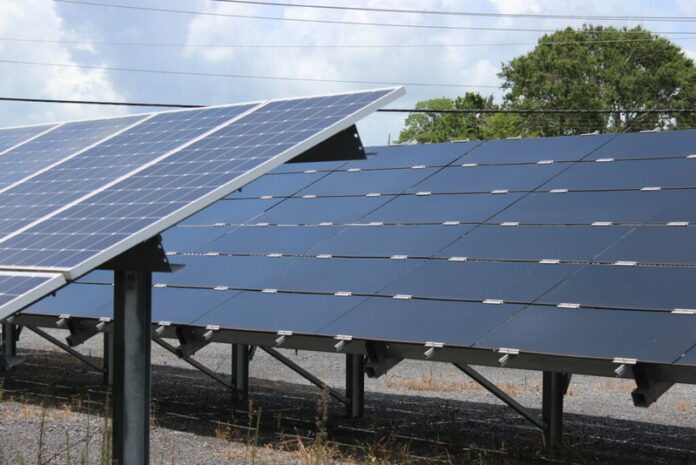
(Georgia Recorder) — The state’s utility regulators are set to vote Tuesday on Georgia Power’s proposal to increase its reliance on fossil fuels and renewable energy sources to meet skyrocketing demand.
During a hearing on Thursday, a Georgia Power representative urged the five-member Public Service Commission to support a stipulated agreement that the company says provides some financial protection to ratepayers. Nonetheless, critics of the plan complain that the company’s plans are unrealistic and that a greater use of renewable energy could prevent the company from significantly expanding its carbon footprint.
The utility intends to rapidly add several thousand megawatts of electricity to its 2023 resource plan In order to supply power to a growing number of large data centers and industrial facilities.
As part of the agreement, Georgia Power would be able to build natural gas or oil-fired units, extend agreements with utility companies in other states, and construct new solar facilities by 2027.
Nine intervening parties have endorsed the stipulated agreement that was first presented by Georgia Power and the PSC’s public interest staff during a March 28 PSC case hearing.
Consumer watchdog Georgia Watch, MARTA, the Clean Energy Buyers Association, and the Southern Renewable Energy Association are among the groups endorsing Georgia Power’s latest request.
The utility company contends that the proposed agreement will benefit residential and small business customers, as well as support the state’s future economic development needs.
Under the agreement, Georgia Power is projecting that the average residential household will save around $2.89 per month on their utility bills over the next couple of years.
The next base electric rate adjustment will be made when the PSC considers the 2025 rate case.
Georgia Power’s attorney, Steven Hewitson, said the company is willing to make concessions during construction in order to mitigate customer risks.
“Approval of this agreement will preserve and protect the reliability and the quality of electric service Georgia Power’s customers expect and deserve,” he said. “It will also support our state’s continued economic development while placing downward pressure on rates for all customers.”
The debate over Georgia Power’s utility rates has intensified the last few years as customers cover rising fuel prices, coal ash cleanup costs, and construction overages at Plant Vogtle. Georgia Power customers will soon pay more on their bills after Vogtle’s fourth and final unit started producing electricity last week.
Several clean energy advocates also made the case at the hearing on Thursday that state regulators amend the agreement by replacing the expanded use of fossil fuels with renewable energy and making large industrial and manufacturing facilities pay for their expanded electric footprint in future rate cases.
“If the PSC approves the stipulated agreement as it stands, it will extend the lifeline of other fossil fuel-burning plants, which will continue to pose an environmental risk to Georgians,” said attorney Jennifer Whitfield, who argued on behalf of the nonprofit Georgia Interfaith Power and Light.
According to Hewitson, granting the motions discussed during Thursday’s hearing could result in more parties refusing to compromise if they believe they can get changes made at the last minute.
According to Georgia Power, it is appropriate to decide how electric rate costs are split between both residential and industrial customer bases when the PSC considers the next rate case.
“They want all the costs to be put on large load customers but they want the benefits of increased revenue to be shared with all customers,” Hewitson said.
“If a party can get what it wants by refusing to compromise on issues and then simply submit a motion seeking to amend that stipulation, then they’re not going to participate in good faith and future negotiations,” Hewitson said.
Georgia Power has also agreed not to collect any additional fees from ratepayers until 2026 on excess electricity it purchases from natural gas-fired units operated by its sister company, Mississippi Power, and at a power plant in Florida.
In addition, Georgia Power pledges not to recoup any construction cost overruns incurred at Plant Yates, located in Coweta County, where three natural gas or oil-fired units would be built.
The company could file a request with the PSC for reimbursement of additional expenses resulting from circumstances beyond the company’s reasonable control, such as natural disasters.
A compromise was also reached with PSC staff that allowed the utility company to speed up building a 500-megawatt solar facility with battery storage by the end of 2026 and to expedite the competitive bidding process for another 500-megawatt solar facility projected to open by early 2027.
Hewitson said that Georgia Power is simply asking the PSC to exercise its discretion and waive the normal bidding process in order to expedite the installation of new power sources.






